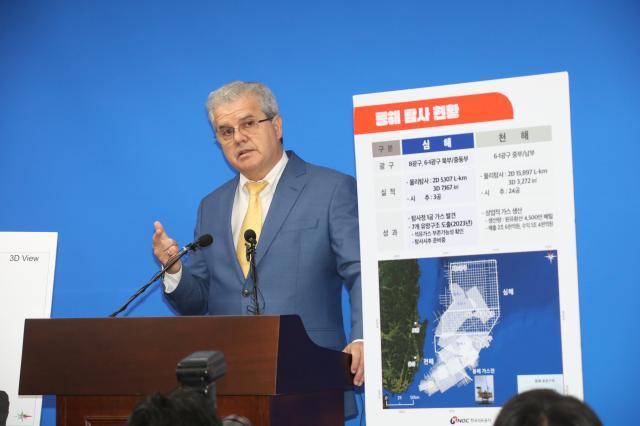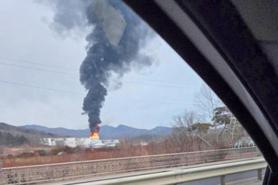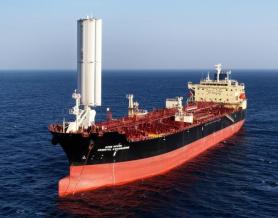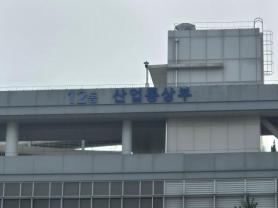
President Yoon Suk Yeol on Monday announced the discovery of the prospects based on U.S. geoscience consulting firm ACT-Geo's projection that as much as 14 billion barrels-equivalent of gas and oil may be buried in the waters off Yeongil Bay in the southeastern industrial city of Pohang.
"The basin is highly prospective," Vitor Abreu, founder and owner of ACT-Geo, said during a news conference in a government complex in the central city of Sejong.
The chance of success for exploration has been estimated at 20 percent, which Abreu said indicates a high level of potential.
"The largest discovery in the world in the last 20 or 25 years is the Liza prospect in Guyana," he said. "The prospect for the Liza oil field was 16 percent." He participated in that project while working for Exxon Mobil.
However, Abreu also acknowledged the risk, noting there is an 80 percent chance that the exploration won't succeed.
Despite this, he encouraged pushing for drilling. "The only way to verify now is through drilling," he said. "There's still risk, but it's inevitable at this stage. Therefore, the only way to reduce it is through drilling."
During the briefing, he criticized Australian oil producer Woodside Energy's assertion that the gas exploration venture in Korea's East Sea lacks potential.
The Australian oil producer withdrew from a joint exploration project with the Korean government, citing the project was no longer considered prospective.
The prospective reserves could be worth as much as four years of oil consumption and 29 years of gas needs in Korea, according to the government.
The actual drilling work to determine the presence of gas and oil is scheduled to commence in December. The government intends to drill at least five holes, with each drilling operation estimated to cost more than 100 billion won ($73.2 million).
If the exploration begins at the end of this year, the presence of reserves will be confirmed by the first half of 2025. Once reserves are ascertained, additional exploration is expected to take place around 2028, with commercial development potentially becoming possible from 2035.
Securities analysts suggest that confirming its economic viability prematurely would be inappropriate. A report published by Meritz Securities on Monday said it's difficult to anticipate the results until drilling is conducted and advised investors to distinguish between the exploration reserves announced by the government and the actual reserves.
Copyright ⓒ Aju Press All rights reserved.




